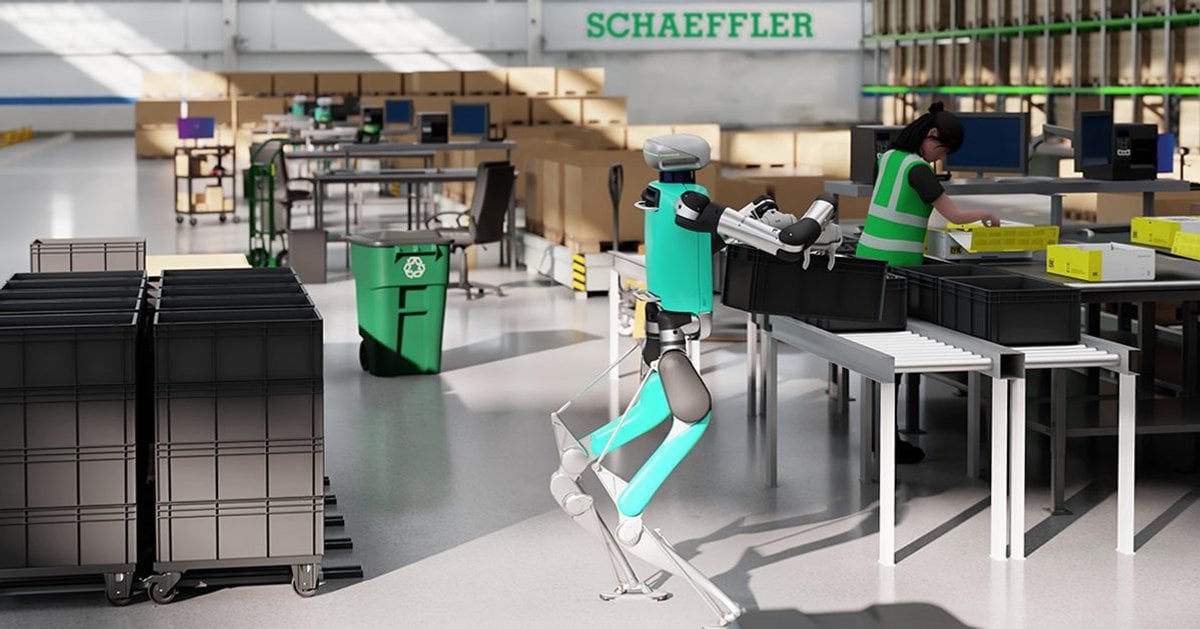How Smart Factories Are Revolutionizing Quality: The Leadership Tech Breakthrough
Manufacturing
2025-04-09 21:00:25Content

In the dynamic world of modern manufacturing, quality control and management have emerged as critical pillars of resilience and success. Brian Martensen from Plex, a Rockwell Automation company, offers profound insights into why these elements are no longer optional, but essential strategies for manufacturers navigating today's complex industrial landscape.
Quality control is more than just a checklist or a departmental function—it's a comprehensive approach that ensures every product meets stringent standards, minimizes waste, and maintains customer trust. By implementing robust quality management systems, manufacturers can transform potential vulnerabilities into opportunities for continuous improvement and operational excellence.
Martensen emphasizes that resilient manufacturing isn't about avoiding challenges, but about building adaptive systems that can quickly respond to disruptions. Advanced quality management technologies enable real-time monitoring, predictive maintenance, and data-driven decision-making, allowing companies to stay agile and competitive.
Moreover, effective quality control goes beyond preventing defects. It creates a culture of precision, accountability, and continuous learning. By integrating sophisticated tracking, analysis, and improvement mechanisms, manufacturers can reduce costly errors, optimize production processes, and ultimately deliver superior products that meet or exceed customer expectations.
In today's global marketplace, where competition is fierce and customer demands are increasingly sophisticated, quality control isn't just a best practice—it's a strategic imperative for survival and growth.
Revolutionizing Manufacturing: The Critical Intersection of Quality, Leadership, and Technological Innovation
In the rapidly evolving landscape of modern manufacturing, organizations face unprecedented challenges that demand a holistic approach to quality management and technological integration. The future of industrial success hinges not just on production capabilities, but on the ability to create resilient, adaptive systems that can withstand complex global disruptions while maintaining exceptional standards of excellence.Transforming Manufacturing: Where Innovation Meets Precision
The Strategic Imperative of Quality Management
Manufacturing excellence is no longer a luxury but a fundamental requirement for survival in today's competitive global marketplace. Quality management transcends traditional quality control mechanisms, representing a comprehensive strategic approach that integrates leadership vision, technological capabilities, and organizational culture. Modern manufacturers must develop sophisticated quality frameworks that anticipate potential challenges, proactively identify systemic vulnerabilities, and create adaptive response mechanisms. Organizations that successfully implement robust quality management strategies can achieve remarkable transformations. These strategies involve comprehensive data analytics, real-time monitoring systems, and predictive maintenance technologies that enable unprecedented levels of operational transparency and efficiency. By leveraging advanced machine learning algorithms and Internet of Things (IoT) technologies, manufacturers can create intelligent quality control ecosystems that continuously learn, adapt, and optimize performance.Technological Integration as a Competitive Advantage
The convergence of leadership vision and cutting-edge technology represents the most powerful catalyst for manufacturing resilience. Advanced digital platforms now enable unprecedented levels of integration, allowing organizations to create seamless communication channels between design, production, quality assurance, and customer feedback loops. Emerging technologies like artificial intelligence, machine learning, and advanced sensor networks are revolutionizing traditional manufacturing paradigms. These innovations enable real-time quality monitoring, predictive maintenance, and dynamic process optimization. By implementing intelligent systems that can instantly detect and respond to potential quality deviations, manufacturers can dramatically reduce waste, minimize production interruptions, and enhance overall operational efficiency.Leadership's Transformative Role in Quality Culture
Effective quality management requires more than technological implementation—it demands a fundamental cultural transformation driven by visionary leadership. Successful organizations cultivate environments where quality is not merely a departmental responsibility but a core organizational value embraced at every operational level. Leaders must champion continuous learning, encourage cross-functional collaboration, and create psychological safety that empowers employees to identify and address potential quality challenges proactively. This approach requires developing comprehensive training programs, implementing transparent communication channels, and establishing performance metrics that reward innovation and quality-driven thinking.Navigating Global Manufacturing Complexities
Contemporary manufacturing landscapes are characterized by unprecedented complexity and interconnectedness. Global supply chains, rapidly changing consumer expectations, and increasing regulatory requirements demand extraordinary levels of adaptability and precision. Manufacturers must develop sophisticated risk management strategies that anticipate potential disruptions, create flexible production models, and maintain rigorous quality standards across diverse operational environments. This requires investments in advanced technological infrastructure, comprehensive training programs, and agile organizational structures capable of rapid response and continuous improvement.Future-Proofing Manufacturing Through Continuous Innovation
The most successful manufacturing organizations will be those that view quality management not as a static process but as a dynamic, continuously evolving strategic capability. By embracing a holistic approach that integrates technological innovation, leadership vision, and organizational culture, manufacturers can create resilient systems capable of thriving amid unprecedented global challenges. Continuous investment in research and development, fostering a culture of experimentation, and maintaining an unwavering commitment to excellence will distinguish industry leaders in the coming decades. The future of manufacturing belongs to those organizations that can seamlessly blend human creativity with technological sophistication, creating adaptive, intelligent systems that consistently deliver exceptional value.RELATED NEWS
Manufacturing

Made in America: Sherrill Manufacturing Marks Two Decades of Resilience and Innovation
2025-03-26 03:00:00
Manufacturing

Manufacturing Momentum Hits Speed Bump: February's Bright Spot Struggles Against Economic Headwinds
2025-02-24 16:49:00
Manufacturing

Manufacturing Mayhem: China's Industrial Sector Stumbles Under US Trade Pressure
2025-04-30 03:15:00





